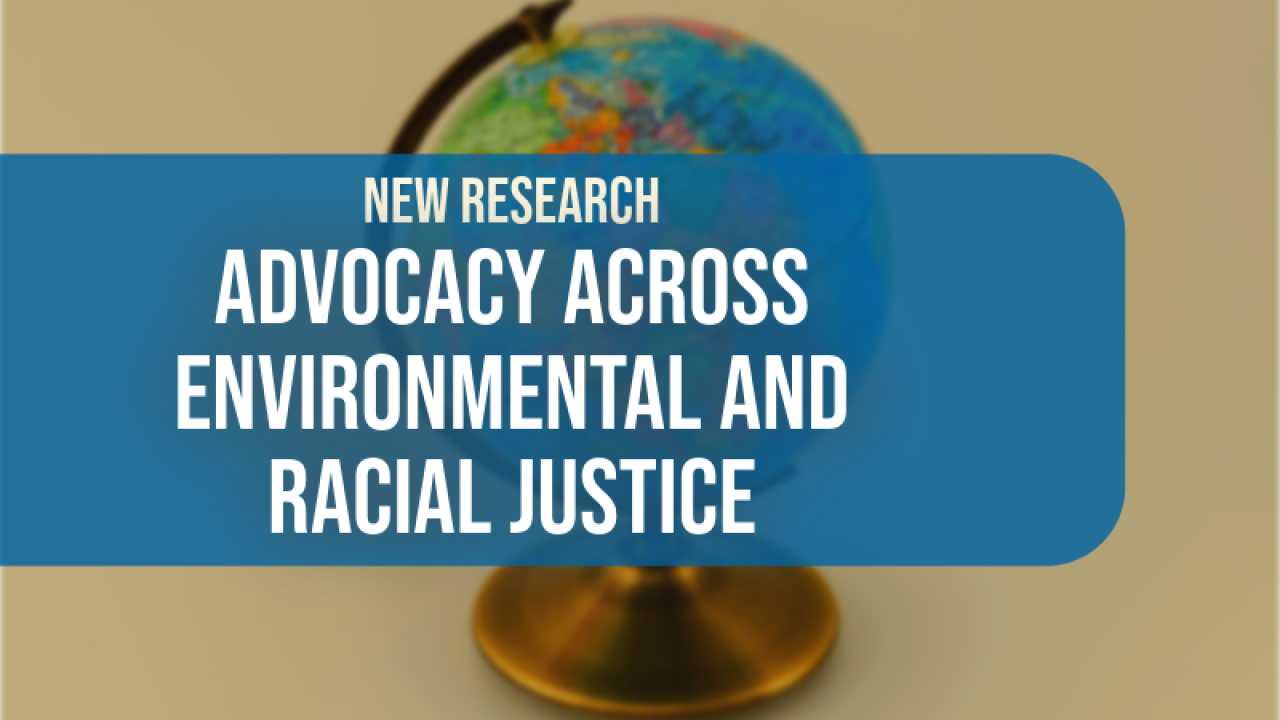March 18, 2024
Examining the psychological implications of authentic CSA across environmental and racial justice

By Luke Capizzo, University of Missouri, and Andrea Martinez Gonzalez, James Madison University
Especially in a society with eroding trust in institutions, “authenticity” is a buzzword, an ever-present social media aspiration, and a key mindset for strategic communicators.
As expectations for organizations to engage in social issues have increased, it’s no longer enough to simply take public stances on contentious issues. Companies must do so authentically and with genuine commitment. And, in a hyper-partisan U.S. political environment, more issues than ever have become polarizing.
The societal pendulum has swung away from its robust and meaningful turn to prioritizing social justice in the mindset of COVID-19 pandemic and the aftermath of George Floyd’s murder and the subsequent uprising. Backlash does exist for certain organizations and specific issues. But, even in a highly polarized climate, many organizations are still taking active stances with positive results.
The exceptions, such as Bud Light’s ill fated partnership with transgender TikTok star Dylan Mulvaney, which resulted in a significant drop in revenue for Anheuser-Busch InBev, help to prove the rule. Bud Light’s initial partnership with Mulvaney was considered performative and inauthentic — a perception which was exacerbated by the company’s backtracking and flip-flopping after criticism.
By contrast, many organizations taking stances on issues have been successful, even in this less-than ideal political climate, by taking clear public positions, explaining their rationale and connection to values and stakeholders, and putting resources and ongoing commitment behind their words.
Additionally, while many CSA studies focus on behavioral outcomes related to the organization (i.e. reputation, intentions to purchase productions in the future, etc.), our approach also incorporates activism-related outcomes. Our assumption: If organizations genuinely care about the issues for which they take public CSA stances, they should also want to move the needle from an advocacy perspective and work to advocate for public awareness, opinion, or behaviors in line with their stance.
We began this research considering the expanding scope of contentious issues as well as the potential mechanisms behind the broadly positive organizational outcomes, even as partisanship has increased.
The heart of our project asked two practical questions:
1. Do issues of environmental justice function like other polarizing issues studied using corporate social advocacy?
2. Is some of the organizational benefit from taking a polarizing stance due to moral decoupling? (i.e. consumer disagreeing with an organization’s stance but not changing their behaviors)
To investigate these questions, we developed a best-case scenario for authentic engagement. We conducted a survey with 1,242 participants, representative of the U.S. population across multiple categories, including gender, race/ethnicity, political party affiliation, and age. Our approach examined the value of using authentic stances by selecting a company well known for its deep commitment to social issues (Ben & Jerry’s) and developing stimuli based on the company’s actual website content on two issues: Racial justice and environmental justice.
This approach led us to three central findings:
1. Our findings demonstrated that, yes, environmental justice did function like racial justice for a U.S. consumer population (an established CSA context). This means that public relations practitioners and organizational leaders could approach engagement with polarizing environmental issues using a CSA lens and likely learn from other well-studied CSA issue contexts.
2. Next, the study also suggested that, for citizens who found a particular corporate advocacy stance morally problematic, they were likely to decouple their dismay from their consumer behavior. Broadly, this compliments and extends earlier work in CSA that shows how supporters may be more likely to purchase from or otherwise support an organization whose stance they agree with. By contrast, this shows that individuals who disagree with the stance are less likely to change their behavior (i.e. stop purchasing) than might be expected, reducing the risk of authentic organizational issue engagement.
3. Finally, this research showed that organizations with strong, authentic stances and clear calls to action for activism have the potential to make a difference for the issues themselves. Using Ben & Jerry’s as an exemplar, a company which creates calls to action for issue activism as part of its CSA stances, has the potential to have genuine impact on broader advocacy efforts.
CSA is a theory designed to help organizations answer questions about their engagement in contentious issues: Will it be broadly beneficial for the organization? Will it cause reputational harm for those who disagree? The abundance of corporations and other organizations taking highly public and highly controversial stances over the last decade has ushered in a new era of societal responsibility and awareness for organizational leaders and public relations practitioners.
This research has sought to investigate big picture issues about the psychological mechanisms at play in CSA reactions from consumers, as well as to more clearly establish environmental justice as as CSA context. We hope that it provides some incremental, but meaningful steps toward organizations taking a more authentic and holistic view of their engagement in contentious issue discourse as well as, broadly, a clearly perspective on their responsibility and civic potential.
For further information on this study, please email Capizzo at capizzol@missouri.edu. This project was supported by a 2022 Page/Johnson Legacy Scholar Grant from the Arthur W. Page Center.
